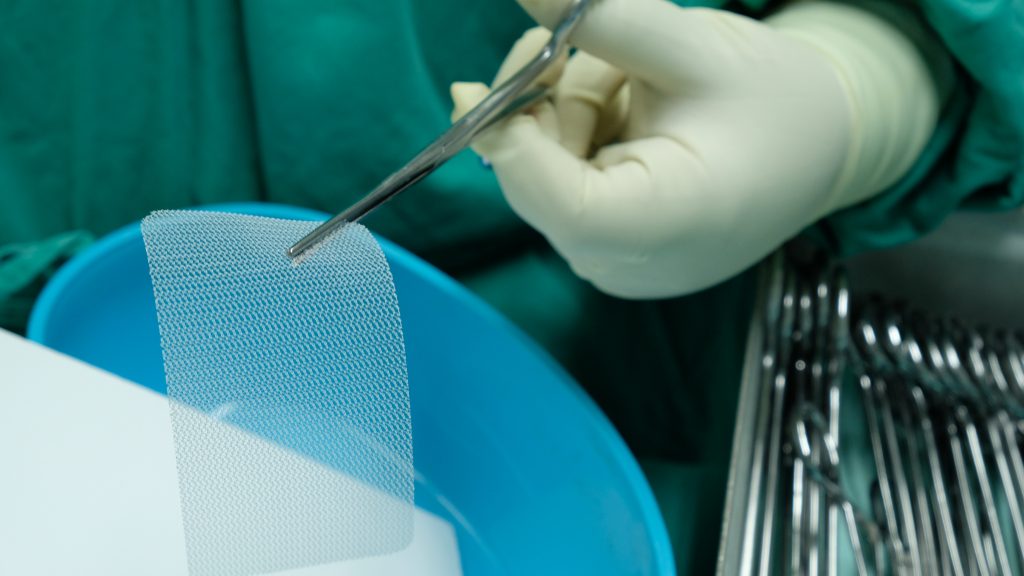
Have you ever received a hernia mesh implant and suffered injuries or complications due to it? If yes is your answer, then you might be eligible to file a hernia mesh lawsuit. For those of you unaware, around 14,900 hernia mesh lawsuits were pending as of October 2020 against leading mesh manufacturers such as Atrium and Ethicon.
However, in order to ensure a victory in the lawsuit in question, you need to make sure of certain details. Knowledge of the type of mesh you received is a must. So, in this article, we will help you in determining the type of hernia mesh you have, as well as, walk you through some interesting hernia mesh facts.
How to Determine the Type of Hernia Mesh You Have?
So, if you are adamant about finding out which hernia mesh was used in your treatment, there are two ways to achieve the said objective.
One way is to reach out to the hospital where your plastic surgery was done. There’s no doubt that the hospital’s medical records department must have all the details of the mesh implant you received. By all the details, we mean the type and manufacturer of the said mesh.
However, countless people have reported how difficult it is to get hold of the medical records department, let alone being able to successfully convince the personnel within the said department to share the details of the surgery you had. In that case, you can opt for the legal route.
You can do so by roping in a hernia mesh or a personal injury lawyer to acquire the surgery records for you. It has been observed that records departments show more willingness to cooperate when the request is placed by a law firm and not by a patient. The reason behind it is that law firms are equipped with the required means to drag the records department to court if needed.
Hernia Mesh: Products, Types & Manufacturers
Acquiring the surgery records can prove to be helpful only if you are aware of the basics of hernia mesh. If you aren’t, we are here to help. So, without any further ado, let’s take a look at the hernia mesh products, types, and list down some leading mesh manufacturers.
Hernia Mesh Product Types
Numerous manufacturers across the globe make hernia mesh products. As of 2020, nearly 70 different mesh products have been rolled out. However, these products can be categorized into three general types:
- Patches: One of the most integral mesh products used to assist the injured tissue by being placed above or below it
- Plugs: Plugs are used to block the hole formed due to hernia
- Sheets: Sheets can be molded in a number of ways and their prime purpose is to assist the patients with their medical requirements.
Hernia Mesh Material Types
When it comes to prosthetic meshes, they can be divided into two types i.e. Synthetic and Bioprosthetic.
In order to be deemed an ideal synthetic mesh, the device has to have certain characteristics such as being non-carcinogenic, chemically inert, sterilizable, resistant to elastic and viscous stresses, hypoallergenic, and able to limit the inflammatory reaction.
Synthetic meshes comprise polypropylene (PP), polytetrafluoroethylene (PTFE), or expanded polytetrafluoroethylene (ePTFE). Moreover, synthetic meshes can either be reticular, laminar, or composite.
Moving on to the second main type of prosthetic meshes i.e. Bioprosthetic. Touted as a viable alternative to synthetic meshes, Bioprosthetics strive to offer the extracellular components required for the completion of healing and reformation of healthy tissue.
There are numerous ways to categorize the Bioprosthetic meshes that are currently available for use. One way is to segregate them on the basis of their tissues i.e. animal/xenogeneic or human/allogeneic. Bioprosthetics can also be broken down by their tissue kind i.e. dermis, intestinal submucosa, or pericardium. Or, simply differentiate between them on processing grounds i.e. stripping or cross-linking.
While many people are still doubtful about the Bioprosthetic meshes, these devices have proven to carry a lot of health perks such as hindered fibrosis and gentle immune response.
Leading Manufacturers of Hernia Mesh
Atrium, Bard, Covidien, Ethicon, and Genzyme are among the manufacturers that have been rolling out leading mesh models.
Interesting Hernia Mesh Facts
- Common hernia mesh side effects include adhesion, inflammation, autoimmune disease, mesh shrinkage, sepsis, etc.
- The expected lifespan of an ideal mesh is permanent
- The non-absorbable mesh remains intact in the body for good
- The absorbable mesh depletes within three and six months, resulting in a hernia where the mesh was located.
Conclusion
If you are among the millions of people who are planning on receiving a mesh implant over the course of 2021, you should be aware of what your mesh is made of and whether there are any side effects that you need to worry about. We hope that this article did a good job of explaining to you the important mesh facts.